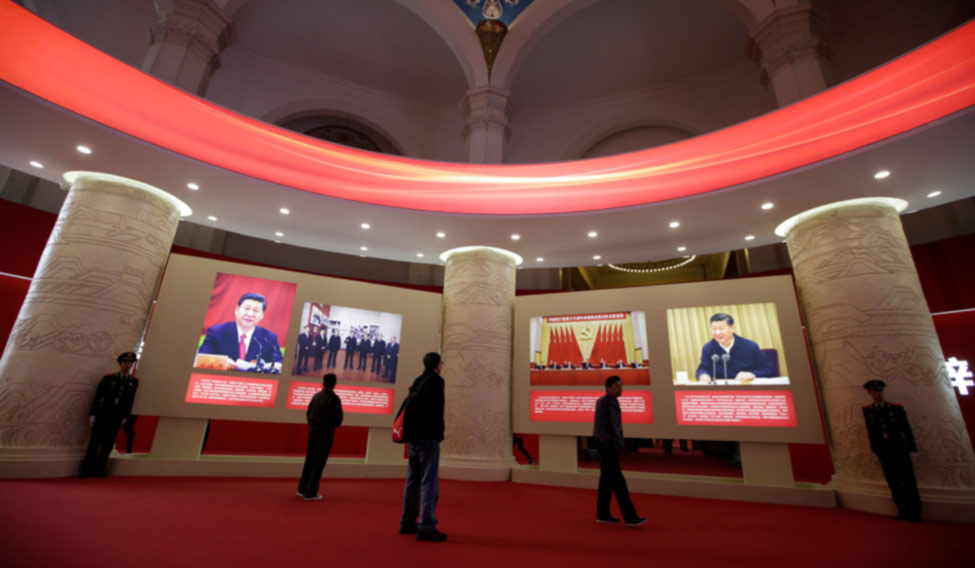There is little doubt that China has been able to dominate individual nations within the Association of Southeast Asia Nations (ASEAN), which has contributed to it subverting the disunited organisation as a whole. The only question is to what degree will it continue to expand its influence.
A clear demonstration of China peddling its diplomatic and economic might is the vexing issue of the South China Sea, particularly in regard to crafting a framework for a future Code of Conduct (CoC) to determine the behavior of claimant nations. After much prevarication, such a framework was eventually agreed upon in Manila on August 6 and 7.
Yet, the framework is a weak document failing to specify what countries can and cannot do in the maritime area.
China is clearly enjoying success in swallowing up ASEAN via a divide-and-conquer approach, seeking to influence individual countries so that particular flash points are kept under control. If the group as a whole cannot assert its bargaining power over China, there is no chance they will do so individually.
China and ASEAN
China's greatest ally is Cambodia. Prime Minister Hun Sen had declared Beijing as his nation's "most trustworthy friend" in 2006. Since 2013, Chinese foreign direct investment into Cambodia has eclipsed that of the rest of the world combined, and its money comes with no strings attached. President Xi visited Cambodia in October 2016, signing USD 237 million in agreements and 31 treaties.
Strong ties with Cambodia illustrate how China can influence ASEAN as a whole. For instance, Phnom Penh singlehandedly prevented the adoption of a final communique at the ASEAN Forum of Foreign Ministers in 2012, as it considered the document to be too critical of China.
Such tactics are of immense value to Beijing, because ASEAN operates on the principle of consensus. The refusal of just one party gives China undue leverage that it can exploit. Essentially, Cambodia gives China a proxy vote in the ASEAN.
Given this, Australia-based academic Euan Graham recently tweeted, "Need to minimise opportunity for China to interfere in drafting process as far as possible (bluntly put)." Singaporean scholar Collin Koh replied, "My concern would be certain spoilers within ASEAN midst. They'll try to manipulate on BJ's behalf."
Hun Sen closed one of the last independent newspapers in Cambodia, the Cambodia Daily, last month. Incidentally, later that month, a new Chinese-backed television channel began broadcasting, illustrating China's spreading soft power.
The Philippines, under the leadership of President Rodrigo Duterte, has buried its face in the sand, turning its back on the moral and legal high ground it achieved from a ruling by the Permanent Court of Arbitration over Chinese territorial claims in the South China Sea.
Beijing must be particularly pleased with the way Duterte has played into its hands as he disavowed the U.S.A. and pledged loyalty to the Middle Kingdom. Duterte sweeping aside his country's victory in The Hague has had a knock-on effect on other claimants who now find it more difficult to stand up to China.
Two of those who have not genuflected are Vietnam and Indonesia. Hanoi remains bitterly opposed to Chinese activity in the South China Sea, but does not have the naval and military clout to frontally oppose its stronger neighbour.
Indonesia claims not to be directly involved in South China Sea disputes, but has shown a resolve to protect its territory by fortifying the Natuna Islands and blowing up Chinese boats fishing illegally in its waters.
Chinese investment in Myanmar amounted to USD 2.8 billion in FY 2016, and Beijing recently expressed support for the government in its bloody campaign against Rohingya Muslims.
Both Malaysia and Thailand have fallen under China's spell too. Embattled Prime Minister Najib Razak appreciated Chinese support amidst scandal allegations, rewarding China with a contract for four warships for his navy. Similarly, China's defense industry has been making great inroads in Thailand.
The kingdom has ordered submarines and made numerous other military equipment purchases. A total of 28 VT4 tanks arrived in the country this month.
Brunei and Laos remain silent, but Singapore has shown more resolve. Singapore Prime Minister Lee Hsien Loong has urged ASEAN nations to strike a balance between Beijing and Washington, but the confiscation of Terrex armored vehicles in Hong Kong last November was best seen as a politically-induced action as China had long been annoyed over Singaporean military training in Taiwan.
At the time, the People's Daily asserted, "Singapore claimed it was not picking sides in the South China Sea disputes, but its remarks about the issue are far from neutral; instead, it has actually complicated and expanded the scale of the case."
That episode will do little to dissuade Singapore from pursuing an independent course, but it does serve as a warning to other nations that China is willing to play rough against anyone who displeases. Relationships that are booming now, for example, could rapidly sour the moment any government does not do Beijing's bidding.
In 2018, Singapore will take over ASEAN's rotating chairmanship from the Philippines. This provides Singapore with an opportunity to advance measures such as the CoC and for regional governments to be more proactive.
The ASEAN countries are willingly embracing Chinese hegemony through Chinese proxies - Cambodia and Phillipines.






